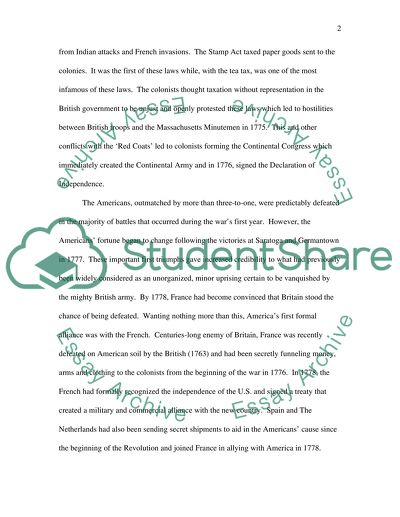Cite this document
(U.S. and British Tactics During the American Revolutionary War Essay, n.d.)
U.S. and British Tactics During the American Revolutionary War Essay. Retrieved from https://studentshare.org/history/1544671-tactics-paper
U.S. and British Tactics During the American Revolutionary War Essay. Retrieved from https://studentshare.org/history/1544671-tactics-paper
(U.S. And British Tactics During the American Revolutionary War Essay)
U.S. And British Tactics During the American Revolutionary War Essay. https://studentshare.org/history/1544671-tactics-paper.
U.S. And British Tactics During the American Revolutionary War Essay. https://studentshare.org/history/1544671-tactics-paper.
“U.S. And British Tactics During the American Revolutionary War Essay”, n.d. https://studentshare.org/history/1544671-tactics-paper.


